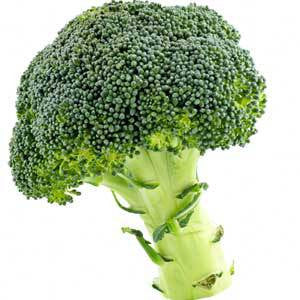

When to introduce broccoli to my baby?

Broccoli is definitely a must in your baby’s diet, but it is not recommended for first-time solid food eaters. It can be introduced to babies 8 months and older since young infants will probably have a hard time digesting this vegetable. Aside from that, older babies are more able to digest food such as broccoli, making them less prone to have gas.
Broccoli is one of the most nutritious vegetables you will ever encounter. It is an excellent source of vitamin C, folate, calcium, iron, protein, and other essential nutrients. If those are not enough, it is also bursting with cancer-fighting phytonutrients. It is considered a “superfood” because of the incredible health benefits it offers. It can boost the immune system, improve cardiovascular health, strengthen bones, and fight birth defects. The health wonders of broccoli are amazing that many parents are becoming eager to know if they can give their babies this “superfood”.
The baby’s developing body can highly benefit from the goodness of broccoli in so many ways. The high vitamin C content in broccoli makes it easier to absorb iron and calcium, which are both very essential as your baby is growing. It can also boost your baby’s immune system, making them less prone to certain sicknesses such as colds and cough. Although broccoli is known to cause gas not just in adults, but also in babies, preparing it well and knowing when the best time to give it are the keys to avoid the gassy effect.
SOURCE: www.cangivemybaby.com
BROCCOLI: (1 cup – steamed)
VITAMINS:
Vitamin A – 2415 iu
Vitamin C – 101.2 mg
Niacin – .86 mg
Folate – 168 mcg
Vitamin E – 2.26 mg
Vitamin K – 220 mg
Contains some other vitamins in small amounts.
MINERALS:
Potassium – 457 mg
Phosphorus – 105 mg
Magnesium – 33 mg
Calcium – 62 mg
Sodium – 64 mg
Selenium – 5.7 mg
Iron – 5.5 mg
Contains zinc, manganese and others
SOURCE: www.momtastic.com
Broccoli is on the list of vegetables the USDA found to contain the least amount of pesticides.
